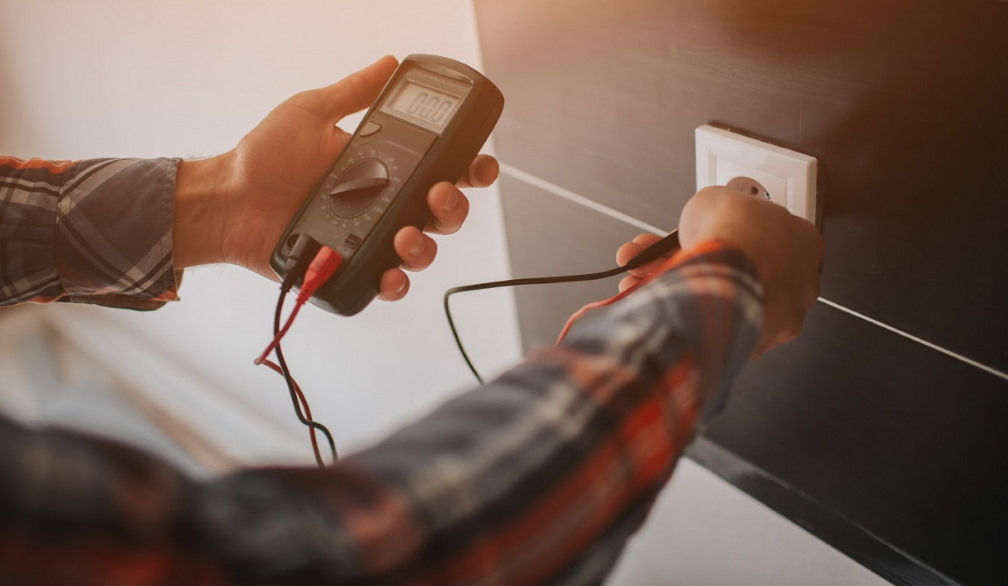7 Warning Signs Of Faulty Electrical Wiring

Issues with wiring in the home shouldn’t be taken lightly. This is because faulty wiring is one of the top five causes of electrical fires. The good news is that there are several indicators that your wiring is defective. This means that you can avert disastrous fires by identifying faulty wiring early on. You'll also avoid the inconveniences associated with flickering lights and fluctuating electrical efficiency if you address faulty wiring as soon as possible.
Here are the following signs that’ll assist you in identifying and resolving problems associated with faulty wiring:
1. Socket Discoloration
Examine the outlets that are scattered throughout the area. Odd colors, scorching, heat emanating from an outlet, or other signs of combustion indicate electrical problems. These show since the wiring connected to the outlet has reached an unsafe temperature or the outlet's faceplate may be distorted.
Unsurprisingly, hot electrical wiring is hazardous. While it’s normal for wiring to become warm after some time, it shouldn’t become so hot that it becomes uncomfortable or damages the outlet plate. In this case, remove the outlet immediately and investigate to determine the source of the problem. You can also opt to contact professionals like electrician Mornington or in your locality to ensure your safety.
2. Overheating Outlets
If there are many electrical appliances in use, they generate heat. However, the outlet should never become too hot. If you detect heat coming from an outlet, immediately unplug all cords and cease using the outlet until the problem is resolved.
The ordinary switch cover plates should be handled similarly with dimmer switches, which frequently become warm to the touch as they dissipate excess electrical energy to achieve the dimming effect. Still, both dimmer switch and cover plates should never become excessively hot to the touch. Excess heat is the reason why it’s important to check the wattage of a light fixture before installing a dimmer switch.
3. Lights That Flicker
According to Hollywood films, flickering house lights are an unmistakable indicator of supernatural tourists. However, the cause of such occurrence can be a loose electrical connection. If the flickering is limited to a single light fixture, the repair is typically quite simple.
If multiple lights or rooms are affected, the issue almost certainly originates further back in the circuit. On the other hand, if the flickering occurs within the building, the problem may be with the breaker box or service drop outside. In that case, the safest course of action is to seek troubleshooting assistance from a licensed electrician.
4. Trippy Circuit Breakers
Circuit breakers are designed to trip in the event of a circuit fault. They quickly and efficiently turn off the power, significantly reducing the risk of an electrical fire. If the circuit breaker trips frequently, there’s a problem with the circuit that requires further investigation. You've almost certainly overloaded the circuit and tripped the breaker.
If relocating any objects doesn’t resolve the issue, it’s most likely a wiring issue.
5. Electric Shocks or Buzzing
Electrical current is passing between wires or to another conductive material nearby. Every unusual noise in your electrical system should be taken with a grain of salt. It indicates that the protective sheath has been compromised, which should be treated immediately.
When you operate the switch or plug something in, the wires connecting them are likely to spark, providing a mild electric shock. Act immediately so the situation will be resolved.
6. Unnecessarily Tangled Wiring
Electricians aren’t expected to be impeccably neat when installing wiring. However, there are no technological advantages or disadvantages to ordered wiring. As a result, a small amount of disarray isn’t always causing alarm.
On the other hand, the arrangement of the wires reveals a great deal about the work's efficiency. Anyone who’s meticulous about maintaining order is more likely to be cautious when it comes to wiring. On the other hand, an unnecessary mess can indicate a hasty job. It isn’t a rigid rule, but it does help.
7. Combustible Or Other Unpleasant Odor
Strange odors may indicate that you're experiencing electrical problems. But, of course, the most popular scent is that of burning. Unsurprisingly, this matter should be investigated and resolved expeditiously. After all, electrical fires are the most frequently encountered hazard associated with wiring issues.
Takeaway
To secure your own home, check the date of your last inspection on your fuse box or breaker panel. An examination is required only when a system is modified as part of a redesign or extension in most municipalities. Additionally, keep the following electrical fire sources and triggers in mind.





